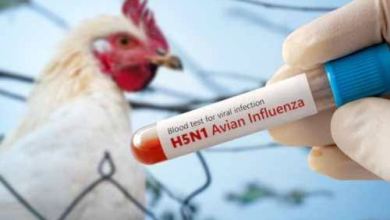Impact Of FG’s 2% Budget Allocation On Agriculture In 2025

While reports have it that the record inflation, exacerbated by current administration’s economic policies, climate shocks and ongoing conflicts are responsible for the food crisis, it was learnt that the most populous African nation had never had it so bad, with so many people without food.
Recently, the United Nations World Food Programme (WFP) predicted that 33 million people will face severe food crisis in Nigeria in 2025.
This figure, which indicates a sharp increase from the 25 million people, who are currently food insecure, not only poses a serious food risk to a country, which prides itself as the giant of Africa, it also forecloses a possible end to the present food crisis.
The report recommended immediate support to avert a potential food and nutrition disaster, where the combination of triple-digit increases in food prices, the aftermath of devastating floods, and 15 years of insurgency in the northeast are stretching families to the limit.
“Our collective response must be immediate and massive in scale. It must span prevention, mitigation, and life-saving assistance. Preventative action in rural areas can halt the growth of hunger, providing the most vulnerable farmers with cash, seeds and fertiliser. Mitigation will reduce the scale of further crises. Urgent support in nutrition, health support, food supply and WASH will reduce the depth of the crisis,” the report read.
With this reality, many had hope that the sad reality would have evoked pity from the Federal Government and other stakeholders to initiate policies and interventions to put the situation under control to a large extend, but the revelation that the Federal Government allocated a meager two per cent to the agric sector in the 2025 budget, forecloses hope of any redemption to the lingering food crisis.
Following the N49.7tr budget presented by President Bola Ahmed Tinubu to the joint session of the National Assembly on Wednesday, agriculture got a paltry N827b or 1.7 per cent of the budget, which is not different from the historical trends.
The budget prioritised defence and security, which got N4.91tr allocation. Infrastructure gets N4.06tr, while health and education get N2.48tr and N3.52tr respectively.
He said: “Allocating only two per cent of the 2025 budget to agriculture raises significant concerns, especially given projections that 33.1 million Nigerians will face acute food insecurity during the upcoming lean season.
“I’m concerned that this modest allocation may not suffice to address the multifaceted challenges, such as post harvest loss, insecurity, and economic instability that can impede agricultural productivity and food distribution.”
While noting that the current administration has pledged to revitalise agriculture, he however, said the current budgetary commitment appears misaligned with the sector’s pressing needs, especially given projections of a worsening food crisis.
“Insufficient funding could hinder, even roll back efforts to enhance food production, improve supply chains, and support farmers, thereby exacerbating the food crisis. To effectively combat food insecurity and fulfill its promises, the government should consider increasing agricultural investment to a level that reflects the sector’s critical importance to national well-being.”
Dr Lawrence Omotayo Olajide-Taiwo, the Initiator/CEO, Betterment Hub and LOFIM Agribusiness, Ibadan, Oyo State, Dr said “The allocation of only two per cent to the agricultural sector is alarmingly inadequate and reflects a concerning disregard for food security, which is vital to national security.
“Historically, the Nigerian government has failed to honour its commitment made in 2014 when all Africa’s Heads of State promised to dedicate at least 10 per cent of the budget to agriculture. Despite the current administration’s efforts to connect agriculture with security—evidenced by the rebranding of the ministry to the Federal Ministry of Agriculture and Food Security and the establishment of the Ministry of Livestock Development—the low allocation signals a lack of real commitment to addressing agricultural needs.”
Dr. Olajide-Taiwo, noted that given the projections of a worsening food crisis in the country in 2025, the National Assembly must reassess the budget and significantly enhance funding for the sector.
Comfort Onyaga, the Founder of Izanu Africa, who noted that the budgetary allocation is demoralising, said: “I personally can see clearly that the current administration is only paying lip service to agriculture, just in a bid to ensure that hunger becomes a weapon. This is a clear weaponisation of hunger.












